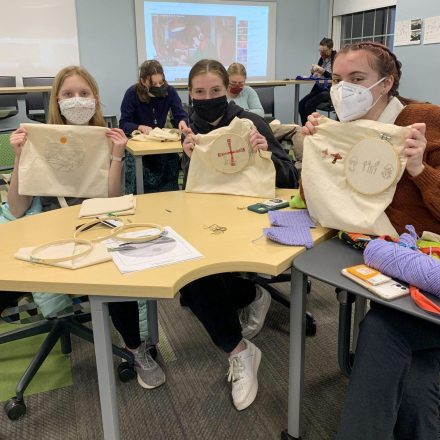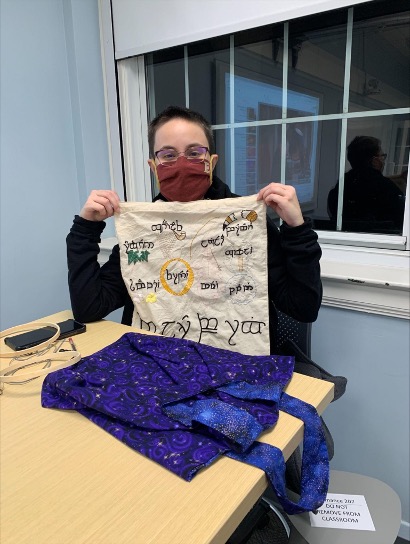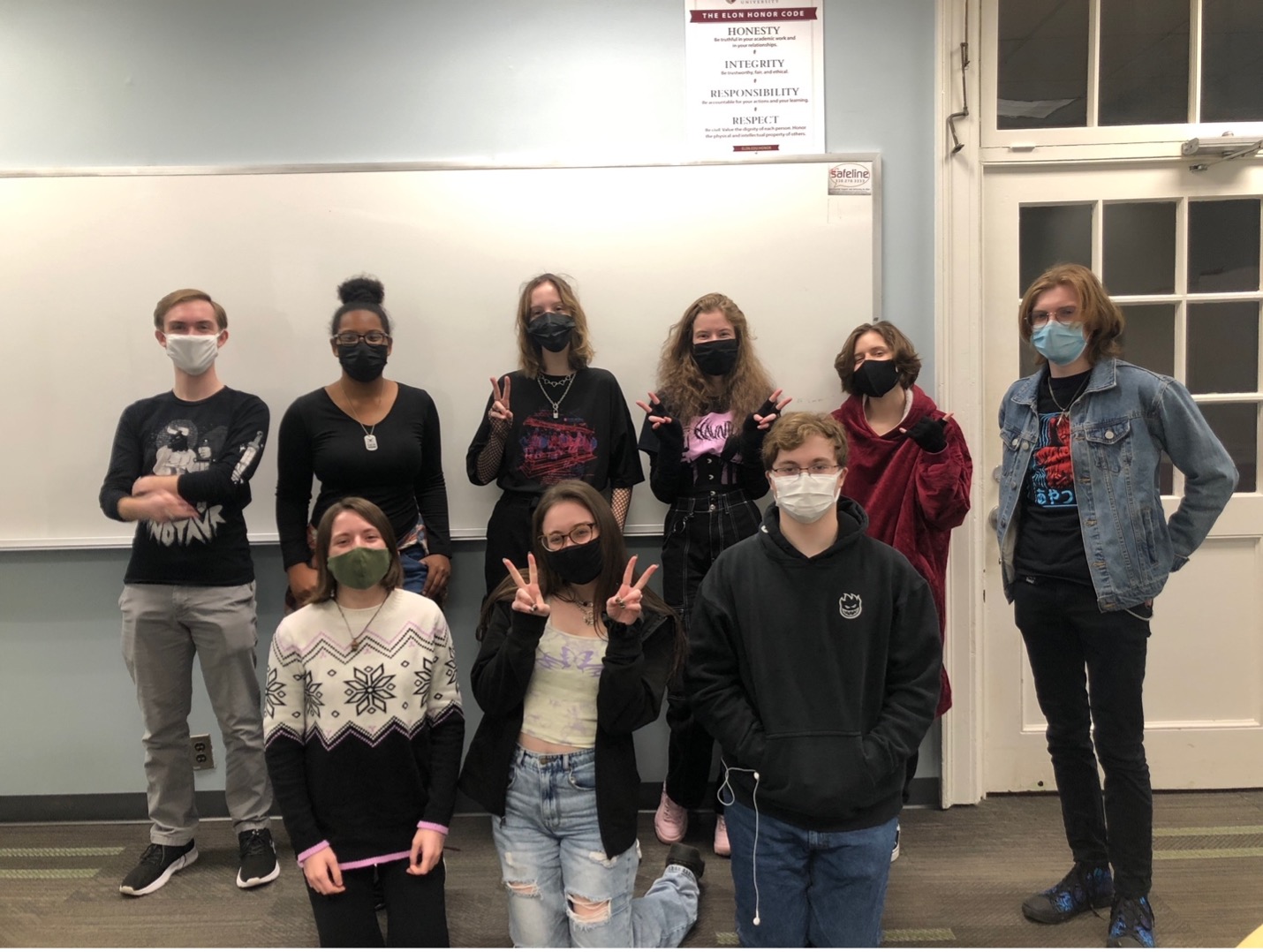Students lead these free, non-credit courses that allow them to share their passions with their peers
During January’s Winter Term, students take a single class that meets three hours a day, which could leave some looking for new ways to pass the time outside the classroom.
To help fill that void each January, student facilitators volunteer their time to lead their peers in free, non-credit courses. It’s an opportunity for students to explore a topic they’ve always been interested in, or “burst their bubble” and try something new.
Burst the Bubble has been a Winter Term staple at Elon since its launch in 2007. Now in its sixteenth year, the program offers students the opportunity to meet new people, have interesting discussions, and walk away with a new skill. The courses have no assignments, grades or assessments, and meet once a week for an hour. Past courses have included a Korean cooking class, a global fusion dance class, and an introduction to Dungeons and Dragons.

“I learned how to hand embroider in late 2020 and realized how fun and relaxing it is, so I decided to plan a Burst the Bubble,” said Amaya Sheffield ‘24, who led “Intro to Embroidery” this Winter Term. “I brought the idea up to my friends last year and they all encouraged me to do it.”
Any student can facilitate or participate in a course. Facilitators can submit their courses at the end of fall semester, and after approval, receive a small budget for supplies and materials. The only faculty involvement is a safety screening when the courses are initially approved.
Sheffield’s course consisted of learning basic embroidery stitches. By the third week, participants were able to embroider their own design on a tote bag.
“Since most students have free time during J-term, why not explore something you may be interested in?” Sheffield explained. “These courses are such a great opportunity to meet other people and have fun, and they typically aren’t much of a time commitment.”

Another student facilitator, Caroline Morrison ‘25, took a different approach when developing “The Art of Fear: How to Write Horror,” a workshop on horror literature and writing.
“Each week we’d spend some time reading, analyzing and discussing different short stories from different sub-genres of horror, then participate in some fun creative writing exercises I designed to grow certain skills,” she said.
Morrison had always had a passion for horror, so she jumped at the chance to share her love for the genre with others. “I didn’t feel at all like a normal English class, because everyone there was passionate about the subject,” Morrison said. “Because there was no pressure of being graded, no one was hesitant to speak up and share their thoughts.”
Both facilitators gained valuable leadership and collaboration skills from leading their courses and enjoyed having the opportunity to share their passions with others.



